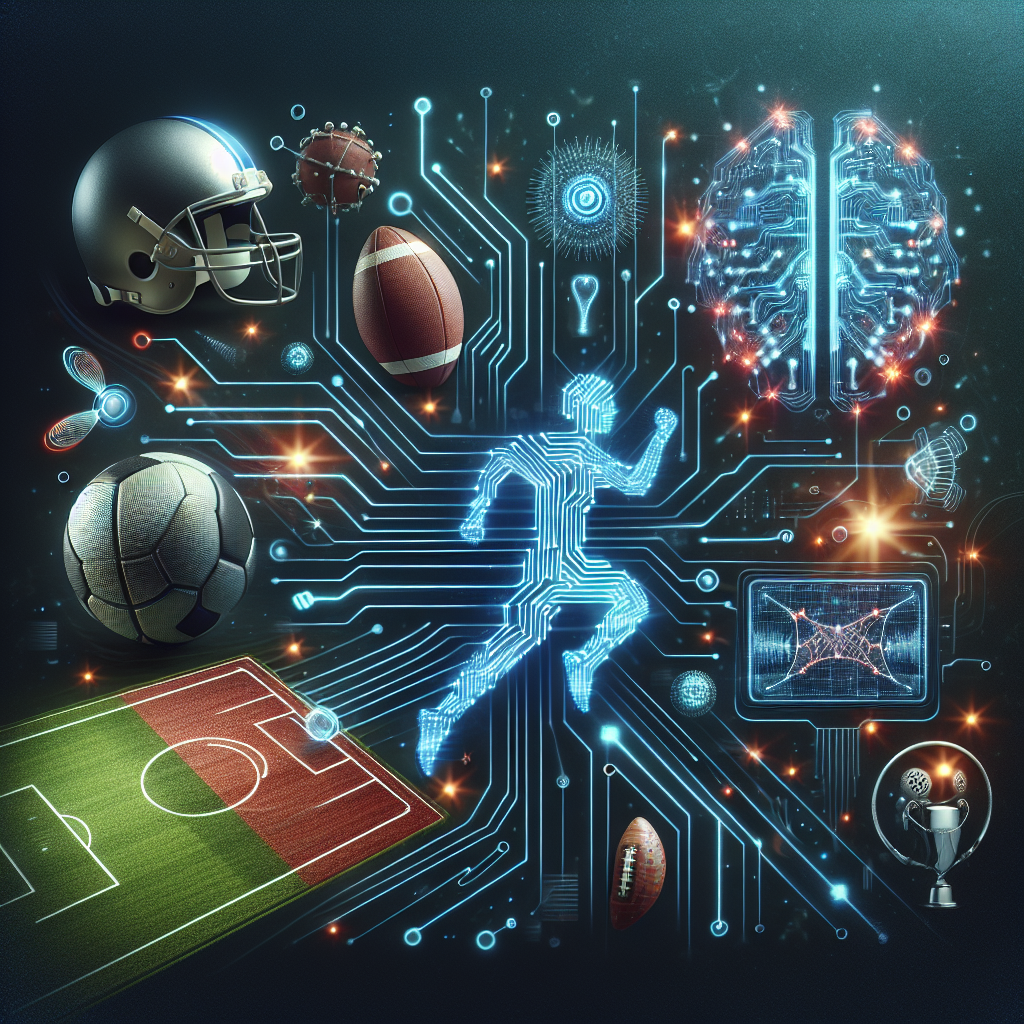Artificial Intelligence (AI) has revolutionized many industries, and sports performance is no exception. From analyzing player data to enhancing training techniques, AI is changing the way athletes and teams approach their performance. In this article, we will explore the impact of AI on sports performance and how it is helping athletes reach new levels of success.
One of the key ways that AI is transforming sports performance is through data analysis. Athletes generate vast amounts of data during training and competition, from biometric data like heart rate and sleep patterns to performance data like speed, power, and technique. AI algorithms can analyze this data in real-time to provide insights into an athlete’s performance, identify areas for improvement, and optimize training programs.
For example, wearable devices like smartwatches and fitness trackers can collect data on an athlete’s heart rate, movement, and performance metrics during training sessions. AI algorithms can then analyze this data to provide personalized feedback on an athlete’s technique, intensity levels, and recovery patterns. Coaches and trainers can use this information to tailor training programs to each athlete’s specific needs, helping them maximize their performance and prevent injuries.
AI is also being used to enhance scouting and recruitment processes in sports. By analyzing player data from games, training sessions, and even social media, AI algorithms can identify talented athletes and predict their future potential. This can help teams make more informed decisions when recruiting new players, ensuring they have the right skills and attributes to succeed at the highest level.
In addition to data analysis, AI is also revolutionizing sports performance through the development of virtual training tools. Virtual reality (VR) and augmented reality (AR) technologies are being used to create immersive training experiences for athletes, allowing them to simulate game-like scenarios and practice their skills in a realistic environment. This can help athletes improve their decision-making abilities, reaction times, and spatial awareness, giving them a competitive edge on the field or court.
Furthermore, AI-powered coaching assistants are helping athletes and teams optimize their training programs and performance strategies. These virtual coaches can analyze data on an athlete’s performance, track progress over time, and provide personalized recommendations for improvement. By leveraging AI technology, athletes can receive real-time feedback and guidance to help them reach their full potential.
Overall, the impact of AI on sports performance is undeniable. From data analysis to virtual training tools, AI is revolutionizing the way athletes train, compete, and succeed. By harnessing the power of AI, athletes and teams can unlock new levels of performance and achieve their goals with greater precision and efficiency.
FAQs:
Q: How is AI being used in sports performance analysis?
A: AI algorithms can analyze athlete data from wearable devices, video footage, and other sources to provide insights into performance, technique, and recovery patterns. This information can help athletes and coaches optimize training programs and improve performance.
Q: Can AI predict future performance in sports?
A: AI algorithms can analyze player data to predict future potential and performance trends. This information can be used by teams to make informed decisions when recruiting new players and developing strategies for success.
Q: How is virtual reality being used in sports training?
A: Virtual reality technologies are being used to create immersive training experiences for athletes, allowing them to practice their skills in realistic game-like scenarios. This can help athletes improve decision-making abilities, reaction times, and spatial awareness.
Q: How can athletes benefit from AI-powered coaching assistants?
A: AI-powered coaching assistants can analyze athlete data, track progress, and provide personalized recommendations for improvement. By leveraging AI technology, athletes can receive real-time feedback and guidance to help them reach their full potential.

